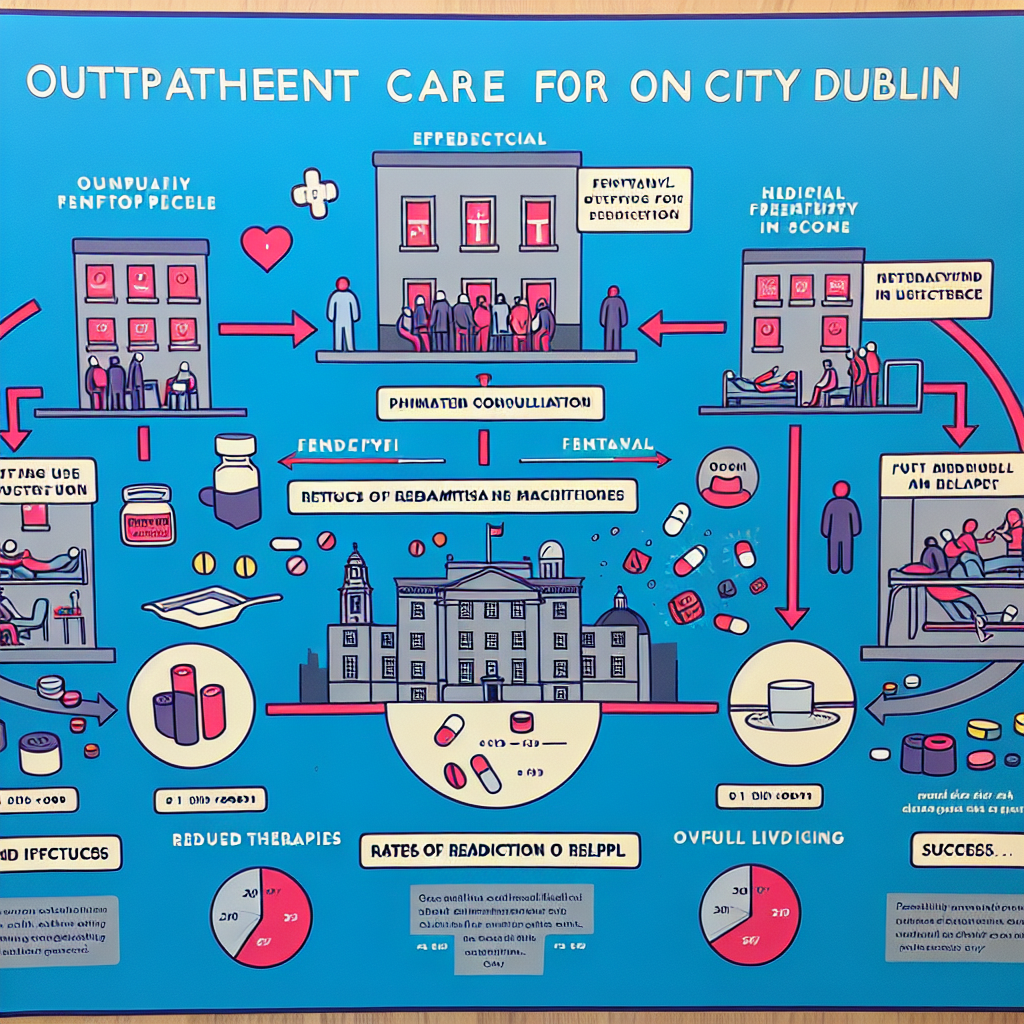-
Table of Contents
“Empower Your Journey: Sustainable Strategies for Lifelong Recovery from Fentanyl Addiction”
Introduction

Maintaining long-term recovery from fentanyl addiction requires a multifaceted approach that addresses both the physical and psychological aspects of addiction. Key strategies include ongoing medical treatment, such as medication-assisted therapy (MAT) with drugs like methadone or buprenorphine, which help manage withdrawal symptoms and reduce cravings. Psychological support through individual counseling, cognitive-behavioral therapy (CBT), and participation in support groups like Narcotics Anonymous (NA) is crucial for addressing underlying emotional and mental health issues. Developing a strong support network of family, friends, and peers in recovery can provide essential encouragement and accountability. Additionally, lifestyle changes such as regular exercise, healthy eating, and stress management techniques like mindfulness and meditation can enhance overall well-being and resilience. Continuous education about addiction and relapse prevention, along with setting and achieving personal goals, further empowers individuals to sustain their recovery journey.
Building A Strong Support Network
Building a strong support network is a cornerstone of maintaining long-term recovery from fentanyl addiction. The journey to sobriety is fraught with challenges, and having a reliable support system can make a significant difference in overcoming these obstacles. One of the first steps in building this network is to reconnect with family and friends who are supportive of your recovery. These individuals can provide emotional support, encouragement, and a sense of belonging, which are crucial during difficult times. It is essential to communicate openly with them about your needs and boundaries to ensure that their support is both effective and respectful of your recovery process.
In addition to personal relationships, joining support groups can be incredibly beneficial. Groups such as Narcotics Anonymous (NA) offer a safe space to share experiences, gain insights, and receive encouragement from others who understand the struggles of addiction. These groups often follow a structured program that includes regular meetings, which can help establish a routine and provide a sense of accountability. Moreover, the shared experiences within these groups can foster a sense of community and reduce feelings of isolation, which are common in recovery.
Professional support is another critical component of a strong support network. Therapists and counselors who specialize in addiction can offer personalized strategies and coping mechanisms to deal with triggers and cravings. Cognitive-behavioral therapy (CBT), for instance, is an evidence-based approach that helps individuals identify and change negative thought patterns and behaviors associated with addiction. Regular sessions with a therapist can also provide a safe space to explore underlying issues that may have contributed to the addiction, such as trauma or mental health disorders.
Furthermore, medical professionals play a vital role in the recovery process. Regular check-ups with a healthcare provider can help monitor physical health and manage any co-occurring conditions. In some cases, medication-assisted treatment (MAT) may be recommended to help reduce cravings and prevent relapse. It is important to work closely with a healthcare provider to develop a comprehensive treatment plan that addresses both the physical and psychological aspects of recovery.
Building a strong support network also involves making lifestyle changes that promote overall well-being. Engaging in healthy activities such as exercise, meditation, and hobbies can provide positive outlets for stress and improve mental health. Establishing a daily routine that includes these activities can create a sense of stability and purpose, which is essential for long-term recovery. Additionally, avoiding environments and situations that may trigger cravings is crucial. This may involve making difficult decisions, such as distancing oneself from certain social circles or changing jobs, but these changes are often necessary to maintain sobriety.
Lastly, it is important to remember that building a strong support network is an ongoing process. Relationships and circumstances may change over time, and it is essential to remain adaptable and proactive in seeking support. Regularly reassessing your support system and making adjustments as needed can help ensure that you have the resources and encouragement necessary to sustain your recovery.
In conclusion, maintaining long-term recovery from fentanyl addiction requires a multifaceted approach that includes personal relationships, support groups, professional help, and healthy lifestyle changes. By building a strong support network, individuals can navigate the challenges of recovery with greater resilience and hope for a brighter future.
Developing Healthy Coping Mechanisms
Developing healthy coping mechanisms is a cornerstone of maintaining long-term recovery from fentanyl addiction. The journey to recovery is often fraught with challenges, but by adopting effective strategies, individuals can navigate these obstacles and build a fulfilling, drug-free life. One of the first steps in this process is recognizing the importance of emotional regulation. Emotions can be powerful triggers for relapse, and learning to manage them constructively is crucial. Techniques such as mindfulness meditation, deep breathing exercises, and progressive muscle relaxation can help individuals stay grounded and reduce stress.
In addition to emotional regulation, establishing a strong support network is vital. Surrounding oneself with positive influences, whether through family, friends, or support groups, provides a sense of community and accountability. These connections can offer encouragement during difficult times and celebrate milestones in recovery. Engaging in regular therapy sessions, whether individual or group, can also provide a safe space to explore underlying issues and develop coping strategies tailored to one’s unique needs.
Another essential aspect of developing healthy coping mechanisms is finding productive outlets for stress and anxiety. Physical activity, for instance, can be incredibly beneficial. Exercise releases endorphins, which are natural mood lifters, and can serve as a healthy distraction from cravings. Whether it’s running, yoga, or even a brisk walk, incorporating regular physical activity into one’s routine can significantly enhance mental and physical well-being.
Moreover, cultivating hobbies and interests can provide a sense of purpose and fulfillment. Engaging in creative activities such as painting, writing, or playing a musical instrument can be therapeutic and offer a constructive way to express emotions. These activities not only occupy time that might otherwise be spent dwelling on cravings but also contribute to a sense of accomplishment and self-worth.
Nutrition also plays a critical role in recovery. A balanced diet can improve overall health and energy levels, making it easier to cope with the demands of recovery. Consuming a variety of fruits, vegetables, lean proteins, and whole grains can help stabilize mood and reduce the likelihood of relapse. Staying hydrated and avoiding excessive caffeine and sugar can also prevent mood swings and enhance mental clarity.
Furthermore, setting realistic goals and celebrating small victories can boost motivation and self-esteem. Recovery is a long-term process, and acknowledging progress, no matter how minor, can reinforce positive behavior. Keeping a journal to track achievements and reflect on personal growth can be a powerful tool for maintaining focus and commitment.
Lastly, it’s important to develop a relapse prevention plan. This plan should include identifying potential triggers, creating strategies to avoid or cope with them, and knowing who to contact for support in times of need. Having a clear plan in place can provide a sense of control and preparedness, reducing the likelihood of relapse.
In conclusion, maintaining long-term recovery from fentanyl addiction requires a multifaceted approach. By developing healthy coping mechanisms such as emotional regulation, building a support network, engaging in physical activity, cultivating hobbies, maintaining proper nutrition, setting realistic goals, and having a relapse prevention plan, individuals can create a strong foundation for a drug-free life. The journey may be challenging, but with determination and the right strategies, long-term recovery is not only possible but also deeply rewarding.
Establishing A Routine And Setting Goals
Establishing a routine and setting goals are crucial strategies for maintaining long-term recovery from fentanyl addiction. The journey to recovery is often fraught with challenges, but creating a structured daily routine can provide a sense of stability and purpose. This structure helps to fill the void left by the absence of substance use, offering a constructive way to manage time and reduce the risk of relapse. By incorporating healthy habits and activities into your daily schedule, you can build a foundation that supports your ongoing recovery.
One of the first steps in establishing a routine is to prioritize self-care. This includes getting adequate sleep, eating nutritious meals, and engaging in regular physical activity. These basic yet essential practices can significantly improve your physical and mental well-being, making it easier to cope with the stresses and triggers that may arise during recovery. Additionally, incorporating mindfulness practices such as meditation or yoga can help you stay grounded and focused, providing a sense of calm and clarity.
Setting goals is another powerful strategy for maintaining long-term recovery. Goals give you something to strive for and can serve as a source of motivation and inspiration. When setting goals, it is important to make them specific, measurable, achievable, relevant, and time-bound (SMART). This approach ensures that your goals are realistic and attainable, which can boost your confidence and sense of accomplishment as you achieve them.
In the context of recovery, goals can be both short-term and long-term. Short-term goals might include attending support group meetings regularly, completing a certain number of therapy sessions, or staying sober for a specific period. These smaller, more immediate goals can provide quick wins and help build momentum. On the other hand, long-term goals might involve rebuilding relationships, pursuing educational or career aspirations, or achieving financial stability. These larger goals can give you a sense of direction and purpose, helping you to envision a fulfilling life beyond addiction.
To stay on track with your goals, it is helpful to break them down into manageable steps. This can make the process feel less overwhelming and more achievable. For example, if your long-term goal is to return to school, you might start by researching programs, then move on to filling out applications, and finally, preparing for any necessary entrance exams. By taking it one step at a time, you can make steady progress without feeling discouraged.
Another key aspect of maintaining long-term recovery is seeking support from others. This can include attending support groups, connecting with a sponsor or mentor, and building a network of friends and family who understand and support your recovery journey. Having a strong support system can provide encouragement, accountability, and a sense of community, all of which are invaluable in maintaining sobriety.
It is also important to be patient and compassionate with yourself. Recovery is a lifelong process, and setbacks are a natural part of the journey. Instead of viewing setbacks as failures, consider them opportunities for growth and learning. Reflect on what triggered the setback and develop strategies to prevent it from happening again in the future.
In conclusion, establishing a routine and setting goals are essential strategies for maintaining long-term recovery from fentanyl addiction. By prioritizing self-care, setting SMART goals, breaking them down into manageable steps, seeking support, and practicing self-compassion, you can build a strong foundation for a fulfilling and sober life. Remember, recovery is a journey, and every step you take brings you closer to a brighter future.
Utilizing Professional Counseling And Therapy
Utilizing professional counseling and therapy is a cornerstone strategy for maintaining long-term recovery from fentanyl addiction. The journey to recovery is often fraught with challenges, and having a structured support system can make a significant difference. Professional counseling provides a safe space for individuals to explore the underlying issues that may have contributed to their addiction. Through various therapeutic approaches, individuals can gain insights into their behaviors, thoughts, and emotions, which is crucial for sustained recovery.
One of the most effective forms of therapy for addiction recovery is Cognitive Behavioral Therapy (CBT). CBT helps individuals identify and change negative thought patterns and behaviors that contribute to their addiction. By learning to recognize triggers and develop healthier coping mechanisms, individuals can better manage their cravings and avoid relapse. Additionally, CBT can be tailored to address co-occurring mental health disorders, such as depression or anxiety, which are common among those struggling with addiction.
Another valuable therapeutic approach is Motivational Interviewing (MI). MI is a client-centered counseling style that helps individuals find the motivation to make positive changes. It focuses on enhancing an individual’s intrinsic motivation to change by exploring and resolving ambivalence. This approach can be particularly effective for those who may be resistant to change or unsure about their ability to overcome addiction. By fostering a sense of empowerment and self-efficacy, MI can inspire individuals to take proactive steps toward their recovery goals.
Group therapy also plays a vital role in the recovery process. Participating in group therapy sessions allows individuals to connect with others who are facing similar challenges. This sense of community and shared experience can be incredibly therapeutic, as it reduces feelings of isolation and provides a network of support. Group therapy offers a platform for individuals to share their stories, gain different perspectives, and learn from the experiences of others. It also fosters accountability, as group members can encourage and support each other in their recovery journeys.
Family therapy is another essential component of a comprehensive recovery plan. Addiction often affects not just the individual but also their loved ones. Family therapy aims to address the dynamics within the family that may have contributed to the addiction or been impacted by it. By involving family members in the therapeutic process, individuals can work towards rebuilding trust, improving communication, and creating a supportive home environment. This holistic approach ensures that the entire family unit is working together towards recovery.
In addition to these therapeutic approaches, ongoing aftercare is crucial for maintaining long-term recovery. Aftercare programs provide continued support and resources to help individuals stay on track. This may include regular counseling sessions, support group meetings, and access to resources such as job training or educational opportunities. By staying engaged in aftercare, individuals can reinforce the skills and strategies they have learned in therapy and continue to build a strong foundation for their recovery.
Ultimately, the journey to long-term recovery from fentanyl addiction is a multifaceted process that requires dedication, support, and professional guidance. By utilizing professional counseling and therapy, individuals can address the root causes of their addiction, develop effective coping strategies, and build a resilient support network. With the right tools and support, long-term recovery is not only possible but achievable, offering a path to a healthier, more fulfilling life.
Q&A
1. **Question:** What role does therapy play in maintaining long-term recovery from fentanyl addiction?
**Answer:** Therapy, including cognitive-behavioral therapy (CBT) and contingency management, helps individuals develop coping strategies, address underlying psychological issues, and build a support system to prevent relapse.
2. **Question:** How important is a support network in long-term recovery from fentanyl addiction?
**Answer:** A strong support network, including family, friends, and support groups like Narcotics Anonymous, is crucial for providing emotional support, accountability, and encouragement throughout the recovery process.
3. **Question:** What lifestyle changes can aid in maintaining long-term recovery from fentanyl addiction?
**Answer:** Adopting a healthy lifestyle, including regular exercise, a balanced diet, sufficient sleep, and stress management techniques, can improve overall well-being and reduce the risk of relapse.
4. **Question:** How can medication-assisted treatment (MAT) support long-term recovery from fentanyl addiction?
**Answer:** Medication-assisted treatment (MAT) using medications like methadone, buprenorphine, or naltrexone can help manage withdrawal symptoms, reduce cravings, and stabilize brain chemistry, making it easier to maintain long-term recovery.
Conclusion
Maintaining long-term recovery from fentanyl addiction requires a multifaceted approach that includes ongoing medical treatment, psychological support, lifestyle changes, and community involvement. Key strategies include medication-assisted treatment (MAT) with drugs like methadone or buprenorphine to manage withdrawal symptoms and cravings, regular counseling or therapy to address underlying mental health issues, and participation in support groups such as Narcotics Anonymous to build a network of peer support. Additionally, adopting a healthy lifestyle through proper nutrition, exercise, and stress management techniques can enhance overall well-being and resilience. Continuous monitoring and adjustments to the recovery plan, along with strong social support from family and friends, are crucial for sustaining long-term sobriety and preventing relapse.



